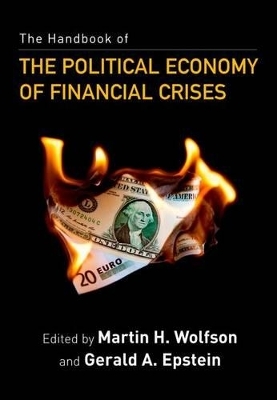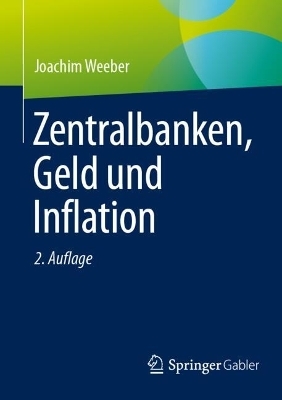
The Handbook of the Political Economy of Financial Crises
Oxford University Press Inc (Verlag)
978-0-19-975723-7 (ISBN)
The Great Financial Crisis that began in 2007-2008 reminds us with devastating force that financial instability and crises are endemic to capitalist economies that lack powerful and dynamically changing financial regulations that can keep the powerful forces of leverage and credit within sustainable bounds. Economists from Marx to Keynes, and Minsky to Kindleberger have well understood this profoundly important fact, yet the dominant mainstream economics of "rational expectations", "efficient markets" and "laissez-faire" that rationalized widespread financial liberalization and still dominates the economics profession has gotten it, literally, "dead wrong". This Handbook of The Political Economy of Financial Crises describes the theoretical, institutional, and historical factors that can help us understand the forces that create financial crises - with an emphasis on the crisis of 2007- 2008 - and the strengths and weaknesses of varying theoretical perspectives and policy approaches that have tried to comprehend and limit these financial tsunamis.
Gerald A. Epstein is Professor of Economics and a founding Co-Director of the Political Economy Research Institute (PERI) at the University of Massachusetts, Amherst. He received his PhD in Economics from Princeton University in 1981. Epstein has written articles on numerous topics including financial regulation, alternative approaches to central banking for employment generation and poverty reduction, and capital account management and capital flows. Martin H. Wolfson is the Director of the Higgins Labor Studies Program. He has taught economics at the University of Notre Dame since 1989. Before that, he was an economist at the Federal Reserve Board in Washington, D.C. His research investigates the effects on working people of financial markets, macroeconomic policy, globalization, and local economic development.
Introduction ; 1. Gerald A. Epstein and Martin H. Wolfson ; PART I: THE GREAT FINANCIAL CRISIS: U.S. DYNAMICS AND EFFECTS ; 2. The Origins of the U.S. Financial Crisis of 2007: How a House Price Bubble, a Credit Bubble, and Regulatory Failure Caused the Greatest Economic Disaster Since the Great Depression. ; Marc Jarsulic ; 3. Speculation and Asset Bubbles ; Dean Baker ; 4. The Great Recession's Impact on Jobs, Wages, and Incomes ; Josh Bivens and Heidi Shierholz ; 5. Distribution and Crisis: Reviewing Some of the Linkages ; Arjun Jayadev ; 6. Housing Markets and Foreclosures ; Rachel Drew and Christian Weller ; PART II: THEORETICAL APPROACHES FOR UNDERSTANDING FINANCIAL CRISES ; 7. The Realism of Assumptions Does Matter: Why Keynes-Minsky Theory Must Replace Efficient Market Theory as the Guide to Financial Regulation Policy ; James Crotty ; 8. Political Economy Approaches to Financial Crisis: Hyman Minsky's Financial Fragility Hypothesis ; Jan Kregel ; 9. An Institutional Theory of Financial Crises ; Martin H. Wolfson ; 10. The Anatomy of Financial and Economic Crisis ; Duncan K. Foley ; PART III: THE GLOBAL DIMENSIONS OF FINANCIAL CRISES ; 11. The Economic and Financial Crisis of 2008-2010: The International Dimension ; Ajit Singh ; 12. Global Imbalances and the International Monetary System: Problems and Proposals ; Jane D'Arista and Korkut Erturk ; 13. How the Full Opening of the Capital Account to Highly Liquid and Unstable Financial Markets Led Latin America to Two and a Half Cycles of 'Mania, Panic and Crash' ; Jose Gabriel Palma ; 14. Financial and Currency Crises in Latin America ; Mario Damill, Roberto Frenkel and Martin Rapetti ; 15. The Asian Financial Crisis, Financial Restructuring and the Problem of Contagion ; C. P. Chandrasekhar and Jayati Ghosh ; 16. Speculation and Sovereign Debt - An Insidious Interaction ; Gerald Epstein and Pierre Habbard ; 17. Whither the Euro? History and Crisis of Europe's Single-Currency Project ; Robert Guttmann and Dominique Plihon ; 18. The Eurozone Crisis through the Prism of World Money ; Costas Lapavitsas ; PART IV: THE ROLE OF INSTITUTIONAL AND STRUCTURAL CHANGE IN THE DEVELOPMENT OF FINANCIAL CRISES ; 19. Changes in the Postwar Global Economy ; David M. Kotz ; 20. Bank Lending and the Subprime Crisis ; Gary Dymski ; 21. Deregulation and the New Financial Architecture ; Damon Silvers ; 22. What We Don't Talk About When We Talk About Banking ; Jennifer S. Taub ; 23. Derivatives in the Crisis and Financial Reform ; Michael Greenberger ; 24. From Innovation to Financialization: How Shareholder Value Ideology is Destroying the US Economy ; William Lazonick ; 25. Financialization and the Global Economy ; Engelbert Stockhammer ; 26. The Restructuring of Capitalism in Our Time ; William K. Tabb ; PART V: POLICY AND INSTITUTIONAL CHANGE TO LIMIT FINANCIAL CRISES ; 27. International and Regional Cooperation for Dealing with Financial Crises ; Jose Antonio Ocampo ; 28. Productive Incoherence in a Time of Crisis: The IMF and the Resurrection of Capital Controls ; Ilene Grabel ; 29. The Japanese Boom and Bust: <"Lean>" and <"Clean>" Lessons ; Robert McCauley ; 30. The Role of the Federal Reserve: Lender of Last Resort ; Chris Rude ; 31. Monetary Policy and Central Banking after the Crisis: The Implications of Rethinking Macroeconomic Theory ; Thomas I. Palley ; 32. The Bailout of the <"Too Big to Fail>" Banks: Never Again ; Fred Moseley ; 33. The Savings and Loan Crisis and Bailout: Lessons for Policy ; Dorene Isenberg ; 34. Pension Policies to Minimize Future Economic Crises ; Teresa Ghilarducci ; 35. A Minskian Road to Financial Reform ; Randall Wray ; 36. The Global Financial Crisis and Africa: The Effects and Policy Responses ; Zuzana Brixiova and Leonce Ndikumana ; 37. Beyond Capitalism? ; Minqi Li
| Verlagsort | New York |
|---|---|
| Sprache | englisch |
| Maße | 251 x 183 mm |
| Gewicht | 1437 g |
| Themenwelt | Sozialwissenschaften ► Politik / Verwaltung ► Staat / Verwaltung |
| Wirtschaft ► Volkswirtschaftslehre ► Finanzwissenschaft | |
| Wirtschaft ► Volkswirtschaftslehre ► Wirtschaftspolitik | |
| ISBN-10 | 0-19-975723-2 / 0199757232 |
| ISBN-13 | 978-0-19-975723-7 / 9780199757237 |
| Zustand | Neuware |
| Haben Sie eine Frage zum Produkt? |
aus dem Bereich


